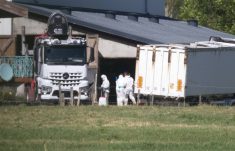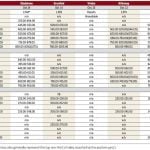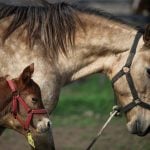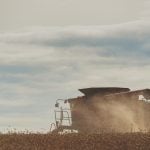The Saskatchewan government has named the three provincially-inspected meat packing firms set to take part in pilot projects aimed at boosting interprovincial meat trade.
Diamond 7 Meats of Lloydminster, Western Prime Meat Processors of Weyburn and Drake Meat Processors of Drake (about 60 km south of Humboldt) will get funding for plant upgrades to meet the necessary regulations for interprovincial trade, the province said in a release.
The other provinces, which between them nominated 16 other packers for the pilot projects after their agriculture ministers’ meeting in February in Toronto, haven’t yet publicly named their picks, a Canadian Food Inspection Agency spokesperson said Wednesday.
Read Also

U.S. livestock: Cattle fall sharply as Trump says he’s working to lower beef costs
Chicago cattle futures fell sharply on Friday after U.S. President Donald Trump said his administration was working to lower the…
Apart from the upgrades, the pilot projects are also meant to “identify and address the challenges facing businesses of varying size in meeting the technical requirements for meat processing and interprovincial trade in Canada.”
The goal, the province said, is “to create a meat inspection system that fully achieves food safety outcomes, is easier to implement in small businesses and creates opportunities for interprovincial trade.”
Funding to pilot participants must go toward upgrading facilities and developing and implementing food safety programs. Governments will provide up to two-thirds of the added cost of undertaking these initiatives for those plants involved in the pilots.
Officials are to work with pilot participants to validate new inspection procedures, collect samples and information, and sort through what technical procedures could be adapted to “better reflect the operating environments of meat processors of all sizes,” the federal government said in December 2010 when calling for potential applicants.
Pilot plants would still be serviced by their current inspection authority as per usual, but throughout the pilot project, federal and provincial authorities would also jointly visit the pilot plant, collect information, run evaluations and validate new procedures for inspections.
Pilots would still operate under their current rules during the initial phases of work, but at the end of the process, pilots would have to meet a modified version of the Canadian Food Inspection Agency’s Manual of Procedures (MOP) and Food Safety Enhancement Program (FSEP) manual, along with other applicable CFIA regulations to become federally registered.
By the time they complete the pilot process, participating plants would be federally registered by CFIA — as long as they meet all federal requirements and operate under the revised procedures drafted for them.
Current federal meat inspection legislation blocks provincially-inspected meat plants from selling meat in Canada beyond the borders of a plant’s home province.
Federally-inspected plants, however, may ship meat anywhere within Canada as well as for export.















